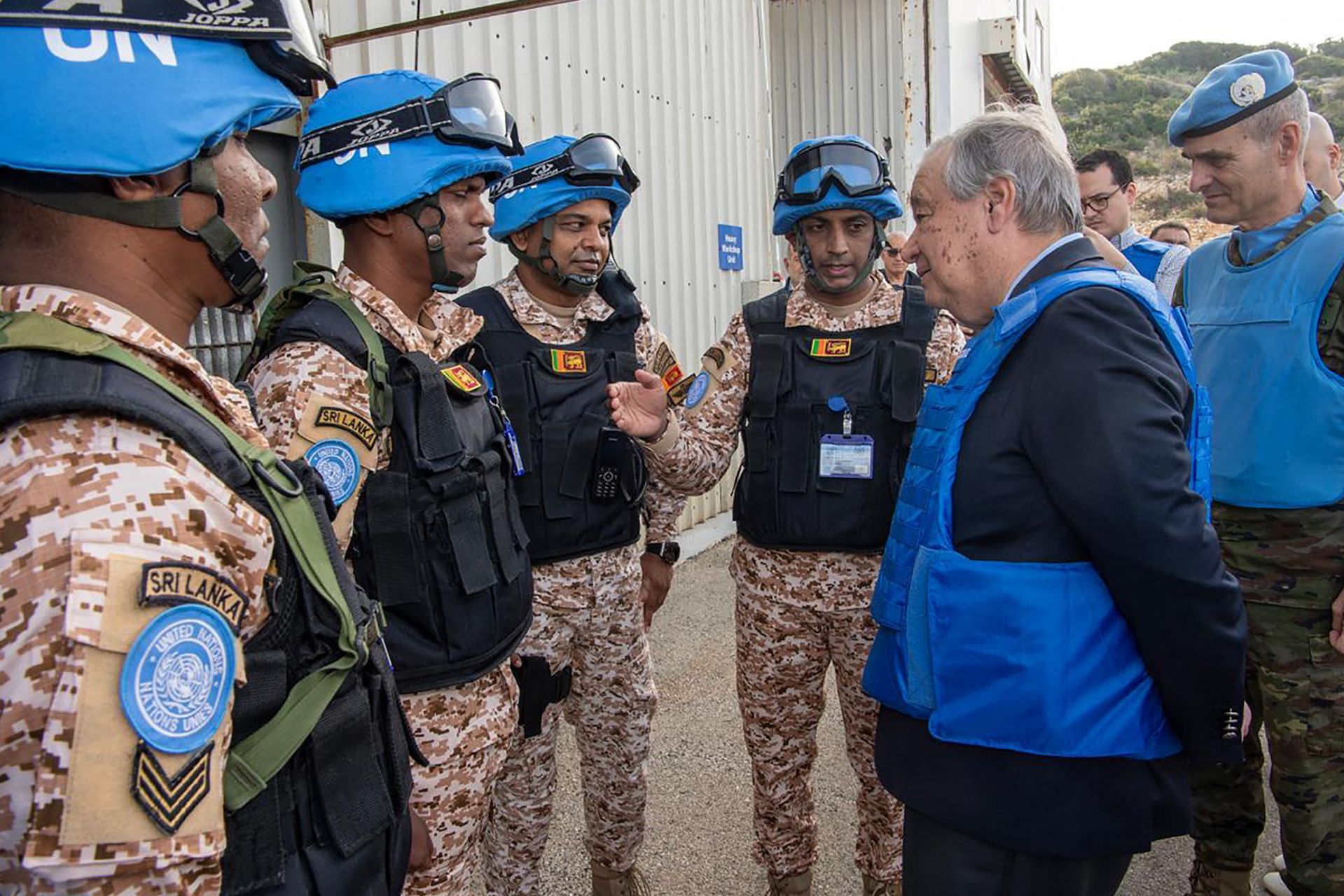
António Guterres' visit to UNIFIL's headquarters in Naqoura comes amid a relatively calm but fragile situation in southern Lebanon. The visit aims to strengthen the peacekeeping mission's mandate and call on all parties to honor their commitments to UN Resolution 1701.
UN Secretary-General António Guterres visited the headquarters of the United Nations Interim Force in Lebanon (UNIFIL) in Naqoura on Friday. The visit came amid regional tensions and a fragile calm in the South. During the visit, Guterres voiced his support for UN peacekeepers and reaffirmed the terms of Resolution 1701, the cornerstone of the UN’s framework in the region.
Unwavering Support
Leading a UN delegation, the Secretary-General praised the tireless efforts of peacekeepers, describing their mission as "among the most challenging in the world." He stated, "You are not only on the Blue Line but also on the frontlines of peace." The UN chief also emphasized UNIFIL’s crucial role in deterring violence, supporting de-escalation and protecting civilians.
In his speech, Guterres emphasized that the presence of Blue Helmets is crucial for maintaining stability in southern Lebanon and along the Blue Line, the border established by the UN in 2000 between Lebanon and Israel. He also condemned attacks on peacekeepers as "completely unacceptable," stressing that they violate international law and could amount to war crimes.
UN Resolution 1701
Adopted in August 2006 after the conflict between Israel and Hezbollah, Resolution 1701 forms the legal basis for UNIFIL's presence in southern Lebanon. It calls for the deployment of the Lebanese Army and UN forces south of the Litani River to establish a zone free of any armed presence other than that of the Lebanese government and peacekeepers. The resolution also calls for the withdrawal of Israeli forces from Lebanese territory and the cessation of hostilities between Israel and Hezbollah.
Despite these provisions, Guterres condemned the ongoing Israeli violations within UNIFIL's area of operations, as well as the presence of non-governmental weapons south of the Litani River. He disclosed that since the ceasefire took effect on November 27, peacekeepers had uncovered "over 100 weapon caches belonging to the Iran-backed Hezbollah or other armed groups."
Guterres' visit comes amid heightened tensions between Hezbollah and Israel, despite a recent ceasefire that ended a weeks-long conflict. This fragile calm is reflected in the ongoing sporadic clashes and frequent violations of the Blue Line by both parties.
To bolster stability, the UN chief called on the international community to step up its support for the Lebanese Armed Forces (LAF), describing them as "the sole guarantor of Lebanon’s security." He also emphasized the crucial need for coordination between UNIFIL and the LAF to ensure the effective implementation of UN Resolution 1701.
Guterres' visit not only highlights the UN's efforts to maintain peace in southern Lebanon but also underscores the challenges faced by UNIFIL. With local pressures, regional tensions and constraints from international actors, the UN mission will need to intensify its efforts to preserve a fragile stability.




Comments